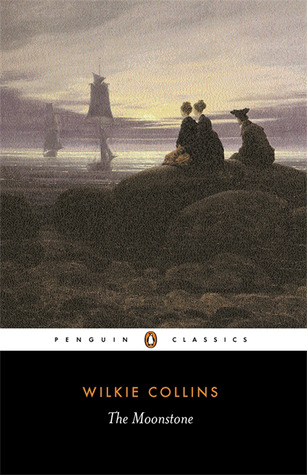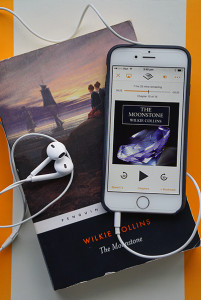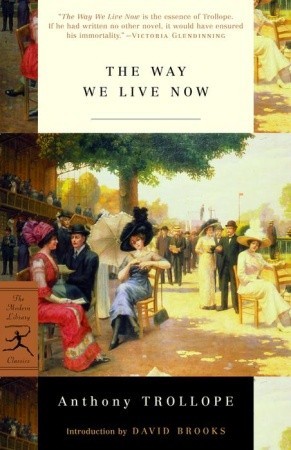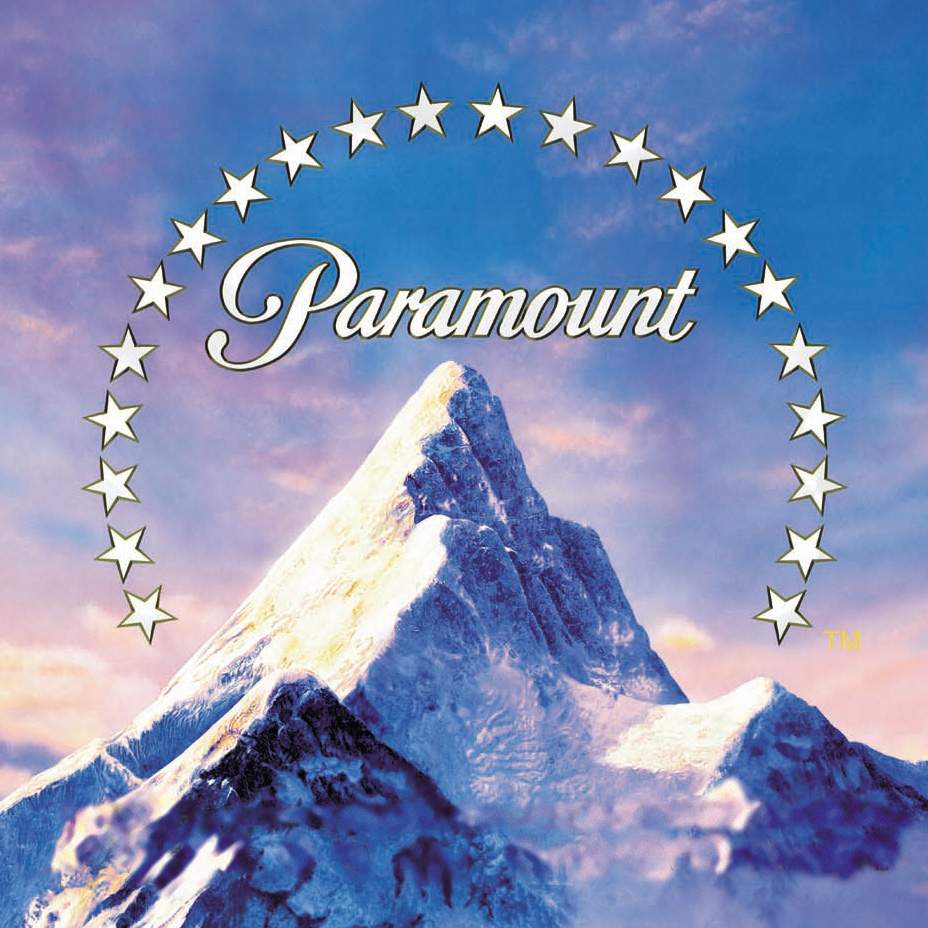The Alienist, Part Three, Chapter 31
Kreizler had engaged a first-class compartment, and after we’d settled into it I immediately stretched out on one seat with my face toward the small window, determined to strangle any curiosity I had about the behaviour of my friends with sleep. For his part, Laszlo pulled out a copy of Wilkie Collins’s The Moonstone that Lucius Isaacson had lent him and began very contentedly reading.
Although nearly two years has passed since the book blog feature was established on 17th Street, it is only now that I am finally overviewing the sole novel included by name in The Alienist. Described by T. S. Eliot as “the first, the longest, and the best of modern English detective novels,” and by Dorothy L. Sayers as “possibly the very finest detective story ever written,” Wilkie Collins’s The Moonstone also served as inspiration for Caleb Carr in the creation of the Alienist series. So, for our final book blog of 2015, let us take a journey back to Victorian England in search of the lost Indian Diamond known to history as The Moonstone.
What’s it about?
The Moonstone, First Period, Chapter 10
‘If you ever go to India, Miss Verinder, don’t take your uncle’s birthday gift with you … I know a certain city, and a certain temple in that city, where, dressed as you are now, your life would not be worth five minutes’ purchase.’
The year is 1848, and the spirited Miss Rachel Verinder is celebrating her eighteenth birthday in the company of family and friends at a house party on her family’s estate in Yorkshire. On this festive day, Miss Verinder is given an unexpected birthday gift that will change her life when it is stolen from her private chambers less than 24 hours after she receives it. The gift is the famous Yellow Diamond, reputed to be cursed, that was looted half a century earlier during the storming of Seringapatam. In a tale that will take you from the ‘shivering sands’ of the Yorkshire coast to London’s bustling streets, Wilkie Collins’s 1868 bestseller introduced an eager public to the idiosyncratic Sergeant Cuff—forerunner of Sherlock Holmes—whose powers of detection are stretched to the limit by three mysterious Indian Brahmin who will let nothing stand in their way to reclaim the lost Diamond, and a household in which nobody is above suspicion.
My thoughts
To explain why it has taken me so long to feature The Moonstone on 17th Street given its significance to the Alienist books, it might be best if I provide a little background before I begin. I first read The Moonstone 10 to 15 years ago, shortly after finishing Wilkie Collins’s first bestseller, The Woman in White. Having loved The Woman in White, I dived into The Moonstone expecting more of the same. Unfortunately, this approach left me somewhat disappointed.
Although it shares the same multiple-narration structure as its forerunner, I found The Moonstone—an early example of the detective novel—more methodological, slower paced, and lacking the psychological intrigue that had drawn me into The Woman in White. That is not to say that I disliked the novel, but where I might have given The Woman in White 5-stars, I probably would have given The Moonstone 3.5 or 4-stars. Thus, faced with the prospect of writing a book blog on The Moonstone for 17th Street, I found myself putting it off for as long as I reasonably could. One reading, I thought at the time, was enough.
However, as the months—nay, years—passed, and I felt that I could not put this off any longer, I decided to try re-reading The Moonstone as an audiobook (narrated by Peter Jeffrey)—and boy, am I glad that I did! Whether I went into the re-read with the right expectations and frame of mind this time (after all, I do enjoy a good detective novel), or whether I simply found a format that suited me better for this particular story, I can say with complete honesty that I loved this re-read, so much so that The Moonstone has become one of my favourite books of 2015, and is a solid 5-star read. Now I finally understand what the Isaacson brothers were on about all this time!
The Alienist, Part One, Chapter 7
“My mother wanted me to be a lawyer, and my brother—the detective sergeant here—he was supposed to be a doctor. It didn’t work out. We’d started reading Wilkie Collins when we were boys, and had pretty well decided by the time we went to college that we wanted to be detectives.”
Although the story of The Moonstone has little in common with The Alienist in terms of plot or theme, the novel clearly served as inspiration for Caleb Carr in the creation of the Alienist series. As I explained in Part One of my discussion of The Alienist’s themes last year, by citing Wilkie Collins as the reason the Isaacson brothers wanted to become detectives Caleb Carr was able to allude to The Alienist’s roots in classic literature. For example, his decision to narrate each Alienist book by a different member of the investigative team is an adaptation of Collins’s multiple-narration structure—and, looking closer, even more similarities can be found.
The Moonstone, First Period, Chapter 12
He was dressed all in decent black, with a white cravat round his neck … His eyes, of a steely light grey, had a very disconcerting trick, when they encountered your eyes, of looking as if they expected something more from you than you were aware of yourself … He might have been a parson, or an undertaker—or anything else you like, except what he really was … a less comforting officer to look at, for a family in distress, I defy you to discover, search where you may.
The reader’s introduction to the illustrious Sergeant Cuff bears such a resemblance—in general impression, if not physical appearance—to Dr. Kreizler, who also dresses in black, that one wonders if Marcus and Lucius Isaacson might have felt they had come face-to-face with their literary hero when they were treated to the Doctor’s “fully arched eyebrows and predatory gaze” during the trio’s first meeting. Of course, Dr. Kreizler is not the only character that owes something of a debt to Sergeant Cuff. The great consulting detective himself, Sherlock Holmes, is strikingly similar to Collins’s creation; and given that Caleb Carr, who wrote an authorised Sherlock Holmes novel in 2005, stated that, “Kreizler was invented quite consciously as a character who could solve all the crimes Holmes couldn’t,” it seems understandable that all three characters would bear resemblances to one another.
Beyond the reader’s first impression of Sergeant Cuff, as you proceed through The Moonstone it is difficult not to notice similarities between other characters in the novels as well. For example, the streetwise youths Octavius Guy in The Moonstone and Stevie Taggert in The Alienist both help their respective investigations in ways the adult characters in the novels are unable to, and both are highly valued by the leaders of the investigations. As Sergeant Cuff remarked of Octavius, “He is the brightest and cleverest little chap I have met with, for many a long year past.” It’s not hard to imagine Dr. Kreizler making a similar remark about Stevie. Sergeant Cuff also attracts a number of amateurs as assistants along the way—most notably the old family butler, Gabriel Betteredge, and Rachel Verinder’s cousin, Franklin Blake—who share in narration of the novel in much the same way that Dr. Kreizler has John Moore (and Sherlock has Watson).
Perhaps the greatest similarity between the novels, however, is the humour that is infused throughout both narratives. Where The Alienist has the bickering Isaacson brothers to provide comic relief, The Moonstone has Betteredge with his faithful Robinson Crusoe, along with the inimitable Miss Drusilla Clack, always at the ready with a tract (or ten) to smooth the way.
The Moonstone, Second Period, First Narrative, Chapter 4
‘I hope you won’t think yourself neglected, Drusilla,’ she said. ‘I mean to give you your little legacy, my dear, with my own hand.’
Here was a golden opportunity! I seized it on the spot. In other words, I instantly opened my bag, and took out the top publication. It proved to be an early edition—only the twenty-fifth—of the famous anonymous work (believed to be by precious Miss Bellows), entitled The Serpent at Home. The design of the book—with which the worldly reader may not be acquainted—is to show how the Evil One lies in wait for us in all the most apparently innocent actions of our daily lives. The chapters best adapted to female perusal are ‘Satan in the Hair Brush’; ‘Satan behind the Looking Glass’; ‘Satan under the Tea Table’; ‘Satan out of the Window’ – and many others.
‘Give your attention, dear aunt, to this precious book—and you will give me all I ask.’ With those words, I handed it to her open, at a marked passage—one continuous burst of burning eloquence! Subject: Satan among the Sofa Cushions.
Poor Lady Verinder (reclining thoughtlessly on her own sofa cushions) glanced at the book, and handed it back to me looking more confused than ever.
So, if you haven’t done so already, why not join Dr. Kreizler in following Lucius Isaacson’s advice and give The Moonstone a try. However, I must warn you that in taking up company with Sergeant Cuff there is a good chance you will catch a highly contagious ailment for which there is no cure; indeed, I’m afraid that I now have a touch of it myself. I shall leave it to Gabriel Betteredge to explain.
The Moonstone, Second Period, Third Narrative, Chapter 3
‘How are you this morning, Betteredge?’
‘Very poorly, sir.’
‘Sorry to hear it. What do you complain of?’
‘I complain of a new disease, Mr Franklin, of my own inventing. I don’t want to alarm you, but you’re certain to catch it before the morning is out.’
‘The devil I am!’
‘Do you feel an uncomfortable heat at the pit of your stomach, sir? And a nasty thumping at the top of your head? Ah! Not yet? It will lay hold of you at Cobb’s Hole, Mr Franklin. I call it the detective-fever; and I first caught it in the company of Sergeant Cuff.’





Hello there!
Such a lovely blog, I’m so glad I found you (thanks Goodreads) :)
I was wondering, have you seen the Popsugar 2016 Reading Challenge? If not, if I were you I would give it a try, it’s extremely well done and from what I can see you are kind of the idea candidate ;)
Have a great weekend!
PS – I’d really appreciate if you could take a look at my blog (just started it very recently) and tell me what you think about it :)
Hurray! Just found all this. I eat books and love historical novels ….so thanks so much!!
Glad you found the site! I love classics and historical novels, too. If you haven’t already seen it, you can find a list of all the books I’ve discussed on the site so far here.